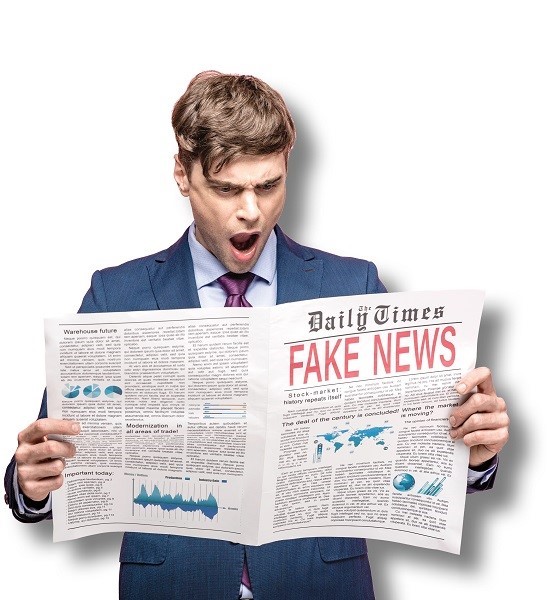“Breaking news: Evidence shows that
COVID-19 Vaccines cause
Aphasia.”
اضافة اعلان
How many times did you read on a friend’s account on social
media such shocking news or information that was shared from a random website?
Have you ever stopped to think whether this information is correct or fake?
The term “fake news” has become well known. Seeing that fake
news are often debunked should make one aware that not all news is real and
that some pieces of information, particularly those that could be harmful,
should be questioned or researched.
Nowadays we could be fed fake news about any topic:
politics, economy, sports and even kitchen, and the only way of avoiding it may
be to literally isolate ourselves from the world.
Mohammad Saeed, a fact checker at a news website, said that
“the easier news can be published the more fake news gets spread”.
Saeed listed a few points that we need to consider every
time we see a post on social media:
1. Who published the post. Search the author of the post and
ask yourself whether the publisher of the post is: real (be it a person or an
organization), credible, specialized in the field of the topic?
Always double check the account and make sure that the
publisher is not biased in favor of any political party.
2. Check sources. If it is a website you are reading from,
try to check the web address. Sometimes, fake news sites may have spelling
errors in the URL or use less conventional domain extensions, such as
“.infonet” or “.offer”. If you are unfamiliar with the site, check the About Us
section to see whether there is a contact us section, for example.
3. Check whether
images are authentic. Most know by now that there are many tools that can
manipulate a picture, adding people that do not really exist or putting people
in places they have never been. A simple
Google reverse image can help discover
the source of an image and find out the original one.
4. Read beyond the text and maintain a critical mindset.
When reading any news item, try to read beyond the written word. Ask yourself
why the story was written. Is it promoting a particular cause or agenda? Is it
trying to make the reader click through to another website? What is the effect
of this information?
Do not be a receiver of news; always read other points of
view, compare, and then make your mind up.
5. Check the date. Fake news is often actually a repost from
the past, which is irrelevant to current events.
6. Check the facts. Any credible news story should include
data and facts, not just quotes. If the story or news you are reading does not
have any, that should sound the alarm. If it does, it is always good to double
check numbers, as, again, the news may be old and the data may not be
compatible.
 The real danger of fake news
The real danger of fake news
According to Saeed, “fighting
fake news is not just a trend
now, it is a need”.
The danger of fake news is that most often people cannot
distinguish real news from fake, and might make decisions based on news that is
not real.
“Fake news manipulate people’s minds and affect their
decisions, and therefore affects entire communities. If we take the coronavirus
as an example, people actually took decisions on whether to take the vaccine or
not and which vaccine is better based on social media posts. Only few people
listened to specialists, and social media posts became more credible,” Saeed
said.
So should one only listen to news channels and believe what
they say?
“Definitely not,” Saeed said.
“People should understand now that there are few media
platforms that deliver the news without any bias. There is something called
‘the policy of the media institution’, which means that the way they present
and use terminology, and even the manner in which the presenter reads the news
should be considered and thought through,” he added.
“News channels also make mistakes, sometimes showing
misleading news; for example, CNN had to apologize for how it misrepresented
Palestinians as settlers in Jerusalem’s Sheikh Jarrah last year,” he
elaborated.
How to know the truth then?
According to Saeed, “do your search, do not let others
control your thoughts. Everybody is able to do a further search on any topic
and then decide what to believe”.
Read more Lifestyle
Jordan News



